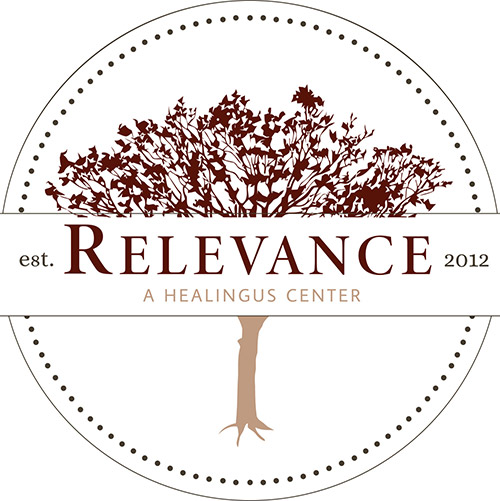When a mental health crisis strikes, it can feel overwhelming, isolating, and urgent. In those moments, knowing where to turn can mean the difference between escalation and stabilization. At Relevance Recovery, we believe that every person deserves access to compassionate, effective care in their moment of greatest need—and we are here to guide you through how to seek help for a mental health crisis.
Understand What a Mental Health Crisis Is
A mental health crisis occurs when someone’s emotional, cognitive, or behavioral distress is so severe that immediate support or intervention is required. This could look like suicidal thoughts or attempts, self-harm behaviors, psychotic breaks, extreme panic or anxiety, or an inability to care for oneself safely. Sometimes, a crisis also emerges when underlying conditions—such as depression, PTSD, or substance use disorders—escalate to a tipping point.
Because mental health challenges are so common, it’s important to recognize how often crises occur: nearly one in five U.S. adults experiences a mental health condition annually. NAMI Yet, many of those people do not receive timely or adequate care when they need it. National Institute of Mental Health. This treatment gap highlights the need for accessible, immediate crisis resources and facilities equipped to provide intervention.
Step 1: Recognize Early Warning Signs
Catching a crisis early is often possible if you know what to look for. Some of the warning signs include:
- Thoughts or talk of wanting to die, harming oneself, or feeling hopeless
- Dramatic mood shifts—extreme agitation, withdrawal, or emotional numbness
- Unusual or concerning behavior changes (e.g., suddenly isolating, giving away prized belongings)
- Increased substance use or risky behavior
- Feeling overwhelmed, unable to cope, or disconnected from reality
If you notice any of these signs in yourself or someone else, don’t wait. Early intervention can prevent harm and reduce long-term damage to mental health.
Step 2: Activate Immediate Supports
If you’re in imminent danger or thoughts include harming yourself or others, call 911 or go to your nearest emergency department. In the U.S., dialing 988 will connect you to the Suicide and Crisis Lifeline—a free, confidential resource available 24/7.
If the situation feels less immediately life-threatening but still serious, try these steps:
- Reach out to a trusted friend, family member, or colleague and let them know you need help
- Contact a mental health crisis line or local crisis center
- Call your therapist, psychiatrist, or another behavioral health provider—even if it’s outside of office hours, many have on-call support
- Use telehealth or emergency mental health apps if local in-person help isn’t immediately available
Having someone with you—physically or virtually—reduces isolation and helps anchor you in safety.
Step 3: Seek Crisis Stabilization or Inpatient Care
Once the immediate crisis is contained, the next step is stabilization. At Relevance Recovery in Freehold, NJ, we provide crisis stabilization services designed for short-term, intensive care in a safe and structured environment. During this phase:
- You’ll receive 24/7 monitoring and support
- Clinicians help reduce acute symptoms—like panic, suicidal ideation, or severe emotional distress
- We offer trauma-informed care, giving you tools and coping strategies in a safe space
- As you stabilize, our team works with you to design a transition plan into ongoing treatment
Crisis stabilization bridges the gap between emergency care and longer-term therapy or rehabilitation programs, helping you regain a baseline of safety before deeper recovery work can begin.
Step 4: Transition to Ongoing Treatment
Stabilization is only the beginning. Sustainable recovery typically involves transitioning into a structured program—whether that’s inpatient/residential care, partial hospitalization (PHP), intensive outpatient (IOP), or tailored outpatient counseling. At Relevance Recovery, we offer all these options in our Ambien addiction and mental health programs, so you can continue treatment with consistency.
During the transition, we help you:
- Begin individual and group therapy
- Address co-occurring disorders (e.g., substance abuse, depression, anxiety)
- Learn coping skills, relapse prevention strategies, and lifestyle adjustments
- Build a support network with family involvement, peer groups, and aftercare resources
The goal is not just to manage symptoms, but to rebuild resilience and reclaim your life.
Step 5: Follow Through with Aftercare & Maintenance
Aftercare is a critical piece of long-term success. Once you graduate from structured treatment, continuing care could include weekly therapy, medication management, peer support groups, or check-ins with a care team. Over time, your treatment plan may evolve as you grow stronger and more autonomous.
We strongly believe crises should not define your life—they can be turning points. With proper care, many people not only recover but also gain new insights, resilience, and purpose.
Get The Help You Need Today
If you or someone you care about is in crisis or living with overwhelming emotional pain, please don’t wait. Contact Relevance Recovery in Freehold, NJ today. Our compassionate team is ready to listen, assess, and guide you to the best possible path forward—from crisis stabilization to long-term healing. Your life matters, and you deserve help. Call or message us now to take the first brave step toward wholeness and recovery.



















